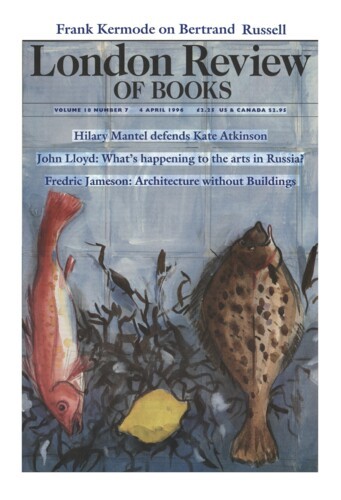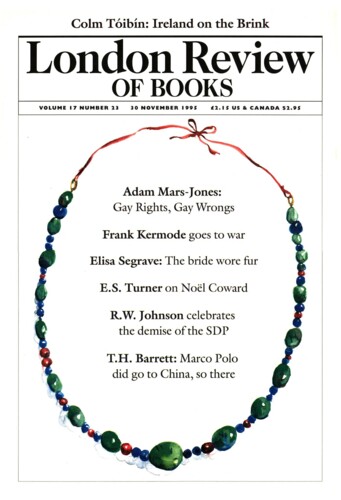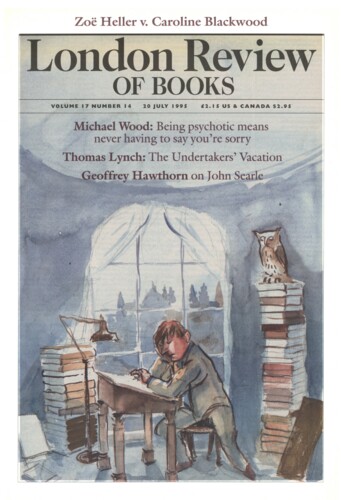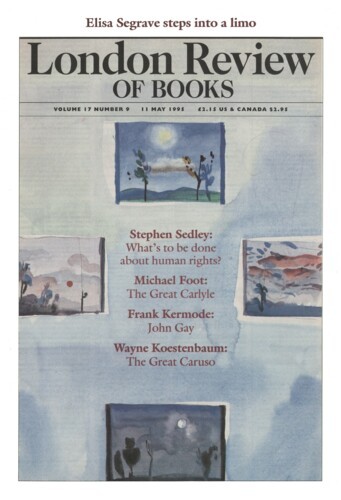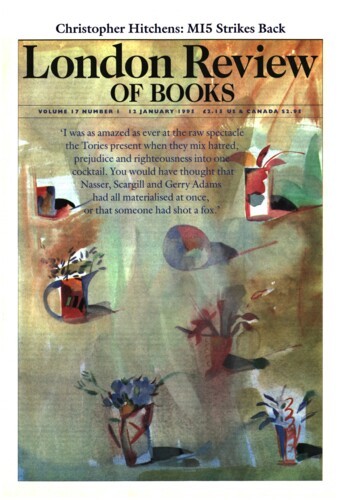Aphrodite bends over Stalin
John Lloyd, 4 April 1996
Russian high culture has failed to flourish since the Soviet Union’s collapse. Though there are now signs of recovery, and though its magnificent base has not been destroyed, it is clear that the overwhelming feeling is still one of loss. Nothing can be done in the short term: the great institutions exist in suspended animation, the great figures age, pass from the scene, or get rich; the new names do not so much make great careers as find niches, very often abroad. In the theatre, incomparable acting is confined very largely to productions of the classics – Chekhov, Dostoevsky, Ostrovsky – in studios or rehearsal rooms before restricted audiences. At the opera, the repertoire is (usually) sung well, though the sets were made thirty years ago. In avant-garde art, the main reference point remains Ilya Kabakov, whose pre-eminence was established in the Seventies and who lives in Paris. Serious music – what there is of it – is as hermetic as anything in the West.’
